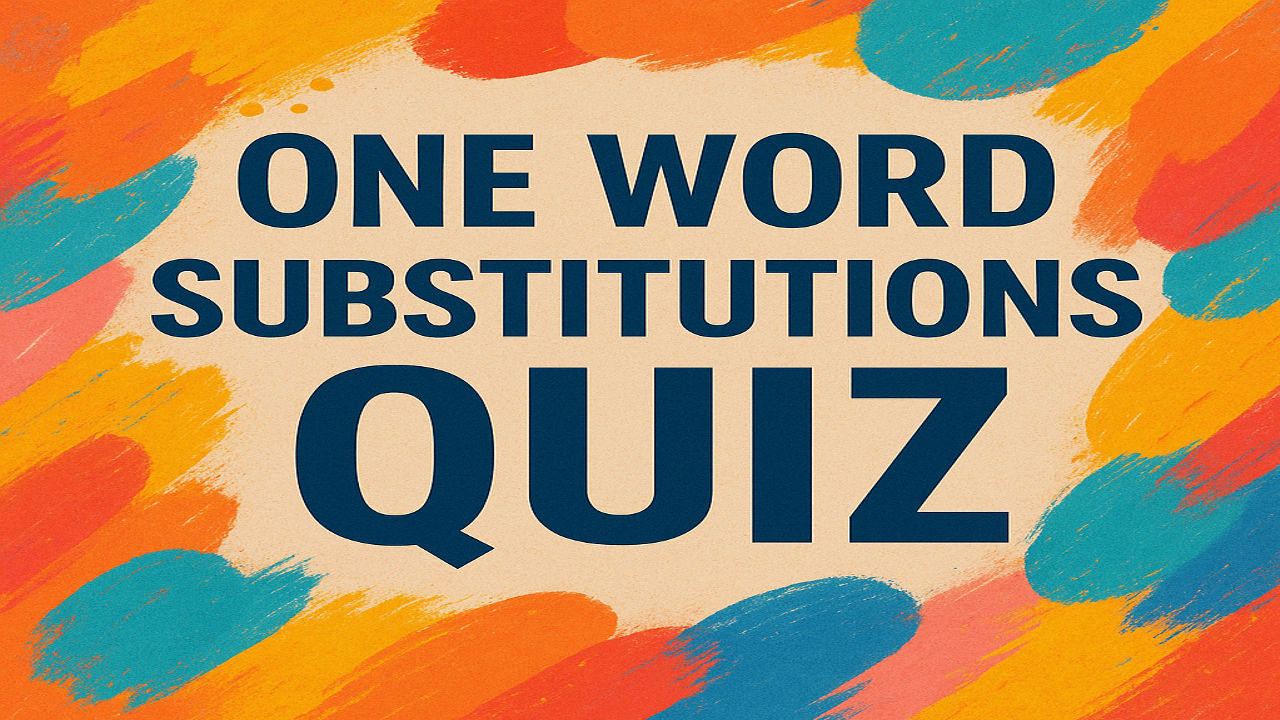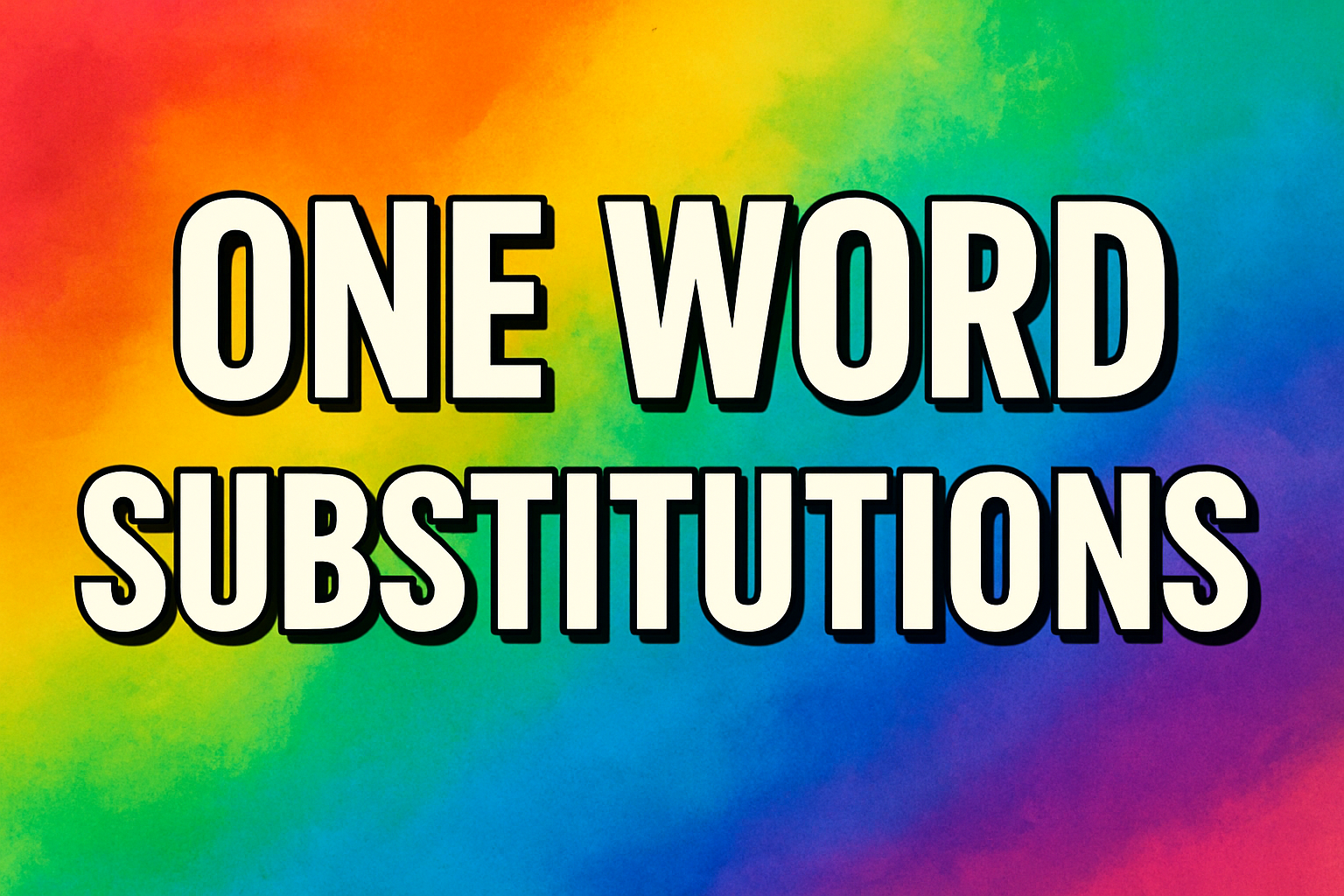Uses of One-Word Substitutions
One-word substitutions are single words that replace longer phrases or descriptions, conveying the same meaning efficiently. Their uses in English include:
- Conciseness and Clarity
- One-word substitutions make communication more concise by replacing lengthy expressions with a single term, improving readability and precision.
- Example: Instead of saying “a person who loves to collect books,” use bibliophile.
- Use: Common in formal writing, speeches, and concise communication to avoid wordiness.
- Enhancing Vocabulary
- They enrich language by introducing specific, sophisticated words, making speech or writing more polished and professional.
- Example: Using altruist instead of “a person who is selfless” sounds more refined.
- Use: Useful in academic writing, literature, and competitive exams (e.g., GRE, IELTS) to showcase advanced vocabulary.
- Effective Communication in Specific Contexts
- They provide precise terms for specific concepts, especially in technical, literary, or professional contexts, reducing ambiguity.
- Example: Apiary instantly conveys “a place where bees are kept,” avoiding vague descriptions.
- Use: Common in journalism, legal documents, and technical writing where accuracy is key.
- Language Testing and Learning
- One-word substitutions are widely used in language proficiency tests and educational exercises to assess vocabulary and comprehension.
- Example: Questions like those in your previous request test the ability to recall precise terms (e.g., polyglot for “a person who speaks many languages”).
- Use: Found in exams like TOEFL, SSC, or UPSC, and in language learning to build word power.
- Literary and Stylistic Enhancement
- They add elegance and variety to creative writing, poetry, or storytelling by using vivid, single terms instead of repetitive phrases.
- Example: Describing a character as a misanthrope instead of “someone who hates people” adds stylistic flair.
- Use: Enhances novels, essays, and speeches for rhetorical impact.
- Cultural and Linguistic Precision
- They reflect cultural or contextual nuances by encapsulating complex ideas in a single word, often derived from Latin, Greek, or other languages.
- Example: Philatelist (stamp collector) is a precise term rooted in Greek, widely understood in collecting communities.
- Use: Useful in cross-cultural communication or specialized fields like history, science, or art.
Summary
One-word substitutions streamline communication, elevate vocabulary, ensure precision, aid language learning, enhance literary style, and reflect linguistic nuances. They are valuable in writing, speaking, education, and professional contexts where brevity and accuracy matter.
If you’d like examples of one-word substitutions in specific contexts (e.g., writing, exams) or more MCQs to practice, let me know!










